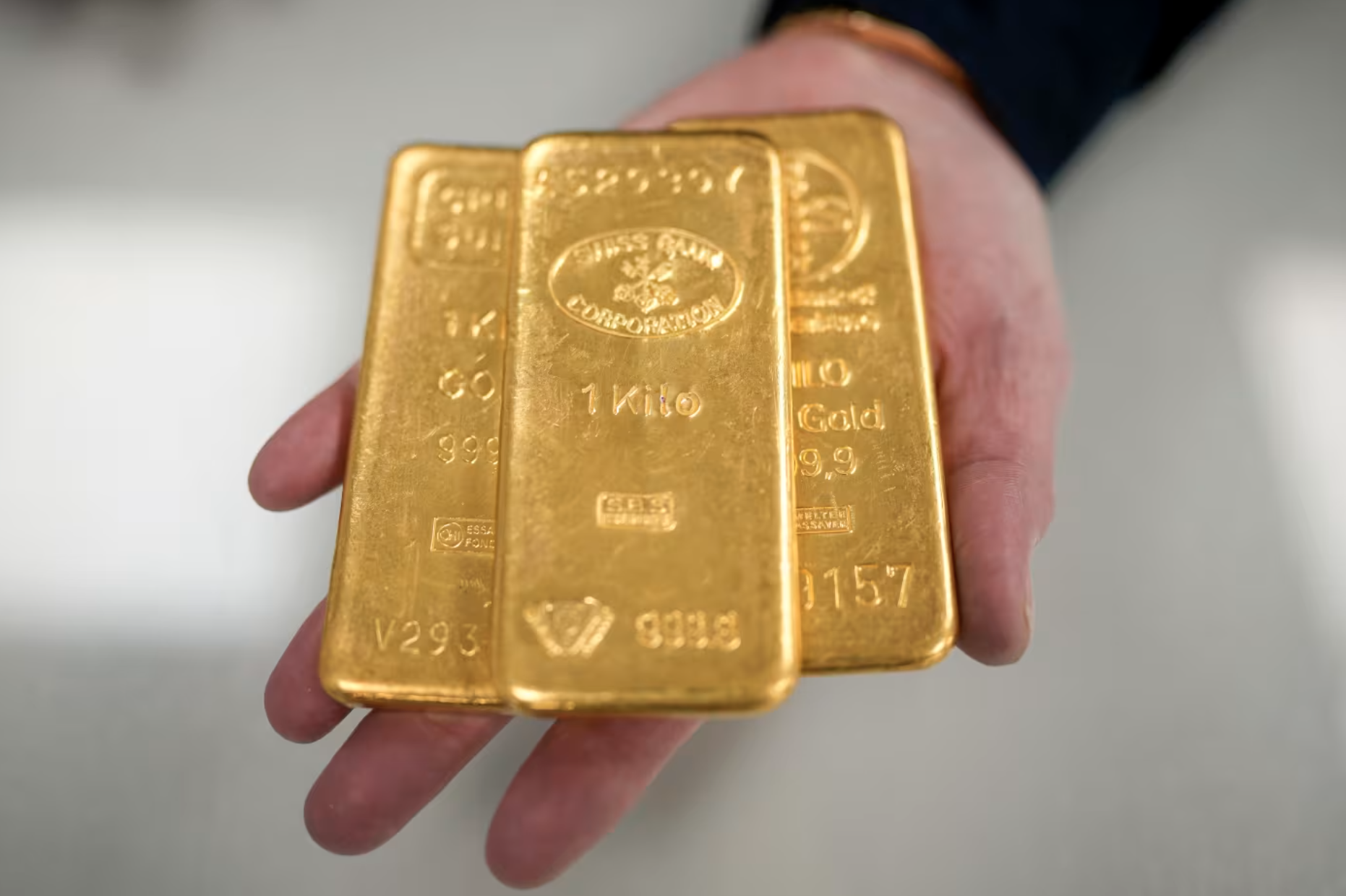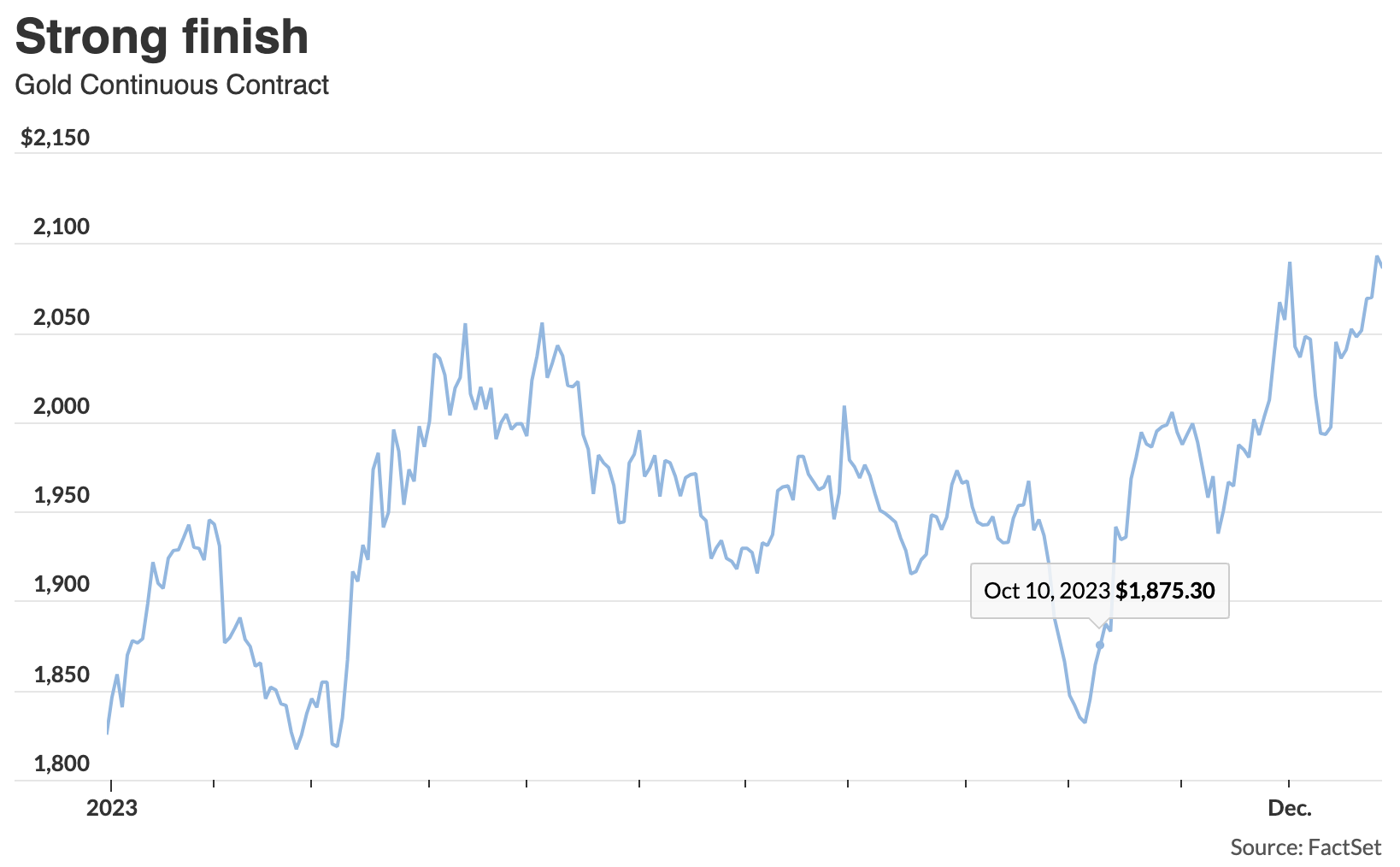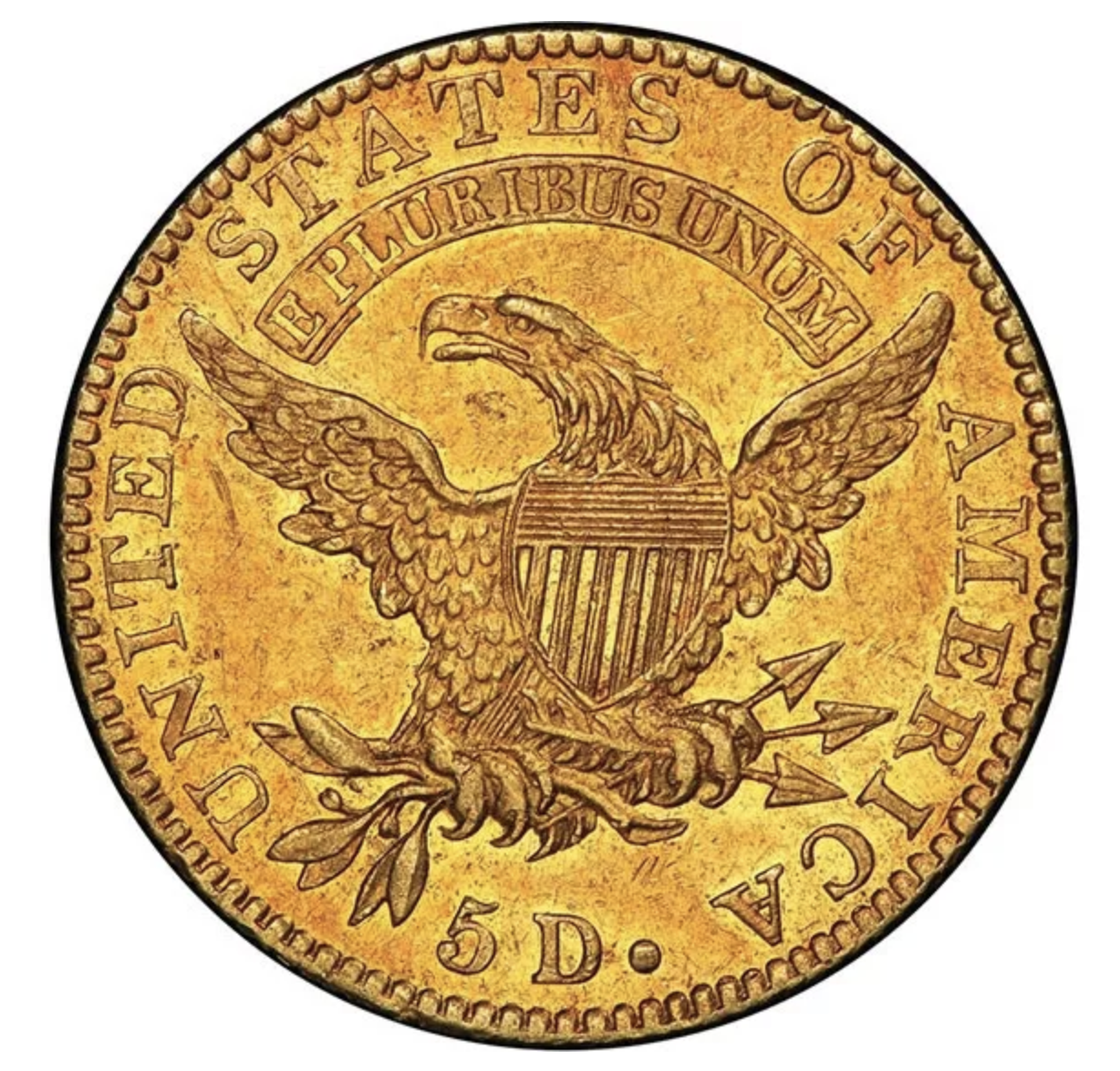Market Watch: Gold is ending 2023 with a record-breaking run. Here’s why.

Gold for February delivery GCG24, -0.56% closed at $2,093.10 an ounce on Comex Wednesday, the highest finish on record for a most actively traded contract GC00, -0.56%, according to FactSet. February gold was off $8, or 0.4%, at $2,085.10 an ounce early Thursday. December gold expired Wednesday at $2081.90 an ounce, a record for the front-month contract, according to Dow Jones Market Data.
Gold is up more than 14% so far this year, based on the most actively traded contract. The yellow metal has yet, however, to take out an intraday high above $2,150 an ounce set when gold briefly spiked to the upside early this month.
 The move came as Treasury yields extended a drop Wednesday, with the rates on the 10-year note BX:TMUBMUSD10Y and the 30-year bond BX:TMUBMUSD30Y falling to their lowest since July, while the U.S. dollar weakened versus major rivals. The ICE U.S. Dollar Index DXY, a measure of the currency against a basket of six major rivals, is down 2.7% in December, pulling it into negative territory for 2023.
The move came as Treasury yields extended a drop Wednesday, with the rates on the 10-year note BX:TMUBMUSD10Y and the 30-year bond BX:TMUBMUSD30Y falling to their lowest since July, while the U.S. dollar weakened versus major rivals. The ICE U.S. Dollar Index DXY, a measure of the currency against a basket of six major rivals, is down 2.7% in December, pulling it into negative territory for 2023.
Falling bond yields can be a boon for gold bulls, reducing the opportunity cost of holding nonyielding assets. A weaker dollar makes commodities priced in the unit less expensive to users of other currencies.
“Beyond the sharp retreat in real yields and the dollar, gold has also been boosted from geopolitical instability as well as direct purchases from central banks diversifying their reserves, most notably in China,” said Marios Hadjikyriacos, senior investment analyst at XM, in a note.
Heading into 2024, gold’s performance will depend on how the economic picture develops and whether a series of Federal Reserve rate cuts penciled in by investors are delivered on time, he said.
Investors are penciling in a series of interest rate cuts by the Federal Reserve in 2024. Fed-funds futures traders have priced in a roughly 87% chance the Fed will have delivered a rate cut by its March meeting, according to the CME FedWatch tool.




